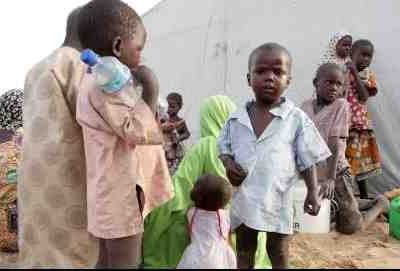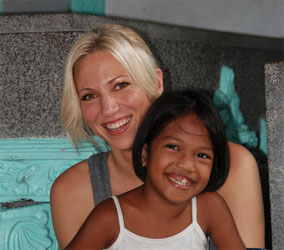
Hundreds of Children Recruited by Armed Groups in South Sudan

On 17 August 2016 in Bentiu, in Unity State, South Sudan, UNICEF Deputy Executive Director Justin Forsyth visits Machacos Primary School.
More than 650 children have been recruited into armed groups in South Sudan since the beginning of this year, UNICEF said last week.
Fearful that renewed conflict could put tens of thousands of children at ever greater risk, UNICEF called for an immediate end to recruitment and the unconditional release of all children by armed actors.
An estimated 16,000 children have been recruited by armed groups and armed forces since the crisis in South Sudan first began in December 2013. UNICEF said children continue to be recruited and used by armed groups and forces despite widespread political commitment to end the practice.
[ Finally, the UN Offers to Resolve Kashmir Conflict ]
“The dream we all shared for the children of this young country has become a nightmare,” said UNICEF deputy executive director Justin Forsyth, speaking from Nairobi following a trip to Bentiu and Juba in South Sudan. “At this precarious stage in South Sudan’s short history, UNICEF fears that a further spike in child recruitment could be imminent.”
In 2015 UNICEF oversaw the release of 1,775 former child soldiers in what was one of the largest demobilizations of children ever. Renewed fighting and recruitment in South Sudan risks undermining much of this progress.
[ Request for Help to Open Free School for Poor Children ]
UNICEF also highlighted increased grave violations in the world’s youngest country, noting that gender-based violence, already pervasive, has greatly intensified during the current crisis.
“Children continue to endure horrific ordeals,” said Forsyth. “Recent reports point to widespread sexual violence against girls and women. The systematic use of rape, sexual exploitation and abduction as a weapon of war in South Sudan must cease, together with the impunity for all perpetrators.”
UNICEF noted that unconditional access for all humanitarian interventions in Juba and all other parts of the country is urgently needed so as to provide support, protection, and assistance to children and women across the country.
“Without a fully operational humanitarian sector, the consequences for children and their families will be catastrophic,” said Forsyth.












